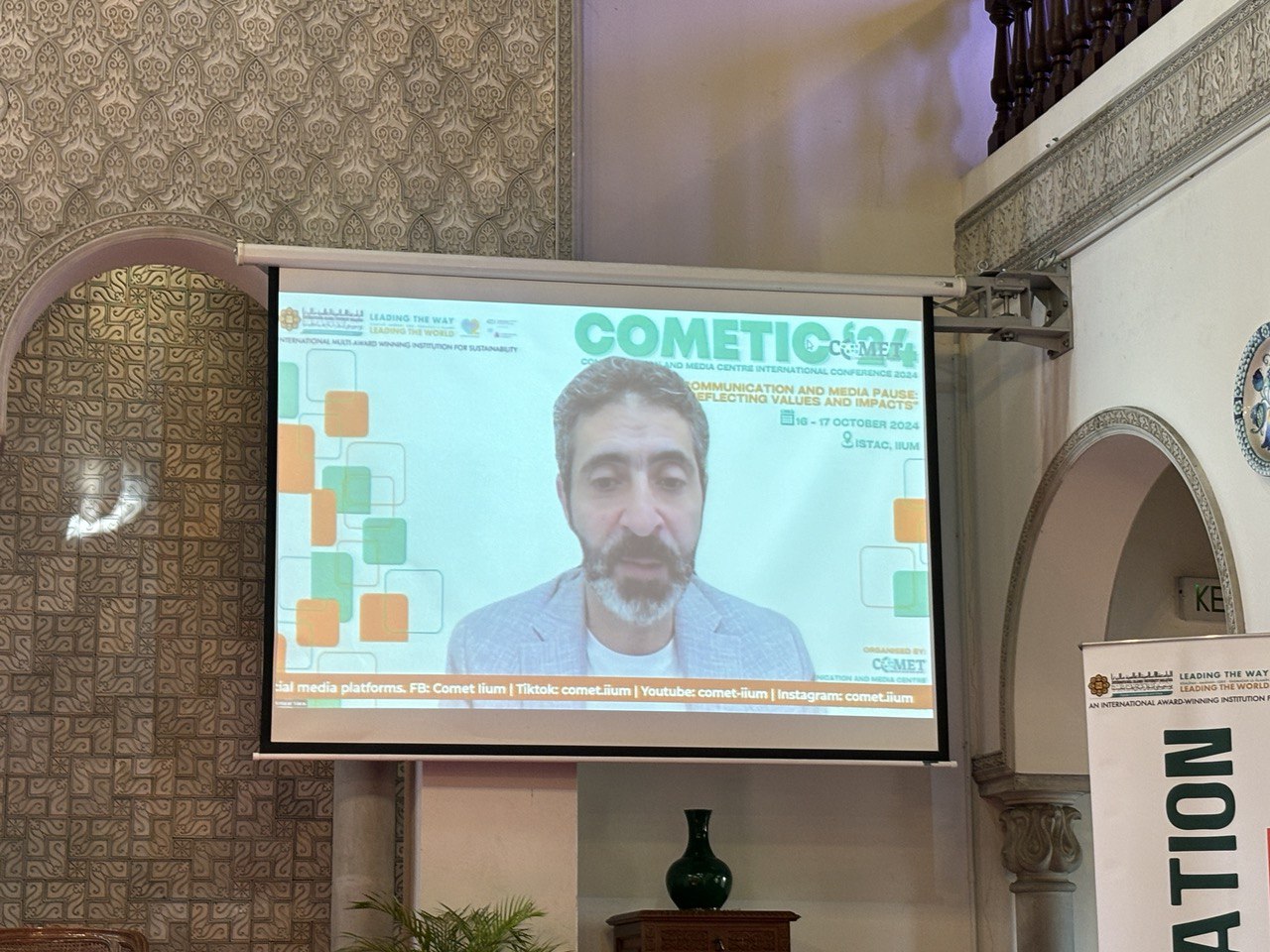By, Insyirah Ikram
KUALA LUMPUR, 16 October 2024: In conjunction with the Communication and Media Centre International Conference (COMETIC 2024) held at the International Institute of Islamic Thought and Civilization (ISTAC-IIUM), from 16 to 17 October 2024, a special speaker delivered a special session on the first day.
Manager of Media Development at Al-Jazeera Media Institute, Montaser Marai, shared his insights on how Western media, which he referred to as Global North media, fails to promote equality in its coverage of the Palestine war crisis. He stated, “Life in Gaza is shadow banned.”
He proved this by showcasing the example of news coverage from the BBC with headlines like in the picture.
In the coverage of the Russia-Ukraine war, the media was straightforward in identifying the attacker. However, in the case of Gaza, no one was explicitly blamed. This contrast demonstrates how Global North media sugarcoats the true story.
Marai emphasised that the Global North controls the media industry, providing the global audience with only one-sided information through its news outlets. He further noted that in 2024, this selective coverage limits our understanding and shapes our perceptions in the wrong way.
According to Marai, in the United States, five multinational corporations own and run:
- 2,600 publishing houses
- 10,000 radio stations
- 2,700 television stations
- 6,000 assorted magazines
- More than 1,400 daily newspapers
The concentration of media ownership has led to a troubling uniformity of viewpoints, primarily serving the interests of capitalism and the United States political elites. He explained that the Global North media do not just display structural bias, it also controls the flow of information, resulting in disinformation that clouds public understanding.
Marai stressed the urgent need for media literacy, urging participants to be discerning consumers of information. He challenged them to reflect on the ethical responsibilities of journalism in an era dominated by misinformation.
Understanding that the media landscape is not just an intellectual exercise, it is vital as a means of fostering solidarity with those affected by the crises particularly, our Muslim brothers and sisters in Gaza. By promoting ethical journalism and advocating for diverse perspectives, we can contribute to a more informed global community, ultimately supporting those in need by amplifying their voices in the face of adversity.***
- “Pressure Makes Diamonds”: Dr. Alaa Nassereldeen’s Journey of Resilience - December 11, 2025
- IIUM Celebrates 559 Graduates at Seventh Session of the 41st Convocation Ceremony - December 10, 2025
- In memory of Hani Bayhaqi: A posthumous degree awards a legacy, a life well-lived, at the 40th IIUM Convocation - November 20, 2024
